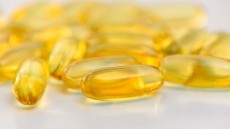Omega-3 may have benefits for dry AMD: Pilot Study

Writing in PharmaNutrition, the research team report the findings from an open-label pilot study aimed at examining the potential for higher dose omega-3 fatty acids to provide clinical benefits to patients with dry AMD.
The team reported that supplemetation with the high-dose omega-3 fatty acids - providing 3.4 grams of eicosapentaenoic acid (EPA) and 1.6 g of docosahexaenoic acid (DHA) - led to significant improvements in vision acuity for 100% of participants within four and half months of supplementation commencing
Led by Tassos Georgiou from the Ophthalmos Research and Educational Institute, Cyprus, the team noted that AMD is the most common cause of severe and irreversible loss of central vision in people over the age of 50 - adding that there is no current approved treatment for dry AMD.
"Since there is no existing treatment for dry AMD, the positive clinical improvements obtained in this pilot study should be considered striking since 100% of the patients had an increase of at least one line of vision within 4.5 months after starting the omega-3 fatty acid supplementation," said the authors.
"Although the dose of omega-3 fatty acids used in these studies may appear high, in fact the average daily EPA and DHA dose used in the subjects reported was about one-third of those levels used in various prior studies in the treatment of severe brain trauma and ADHD," they added.
'Stark contrast'
Georgiou and colleagues noted that their findings are in 'stark contrast' with other recent publications that have found no benefit for omega-3 fatty acids and AMD.
"We hypothesize the reason that our open label experiments with high-dose omega-3 fatty acids in the treatment of dry AMD was successful is a consequence of both (a) the increased dosage and (b) the higher levels of EPA delivered with our omega-3 fatty acid formulation," they said.
"The daily levels of supplemented EPA in our open-label pilot study were 4 to 5 times greater than the other two negative studies."
Source: PharmaNutrition
Published online ahead of print, doi: 10.1016/j.phanu.2013.10.001
"Pilot Study for Treating Dry Age-related Macular Degeneration (AMD) with High-Dose Omega-3 Fatty Acids"
Authors: Tassos Georgiou, Anastasia Neokleous, Despina Nikolaou, Barry Sears















